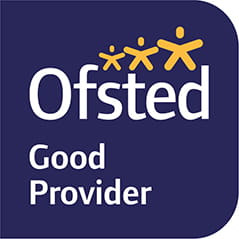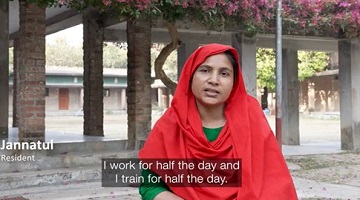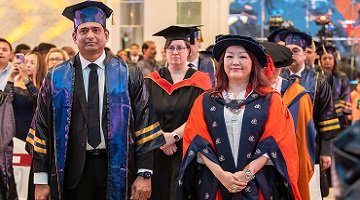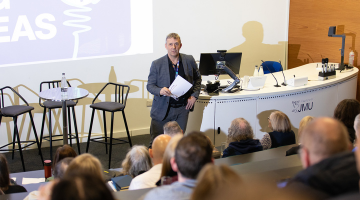About this course
Train to become a superb Secondary teacher in a wide range of subjects at LJMU and graduate with a Postgraduate Certificate in Education and Qualified Teacher Status.
- Earn whilst you learn on this employment-based initial teacher training programme
- Train to teach whilst an employee in a school setting and take on responsibility for your own classes from the first day of term
- Follow a curriculum developed and delivered in partnership with outstanding local schools
- Learn from LJMU staff at our city centre campus and from expert teachers
- Prepare for a career as an innovative and creative teacher
The Salaried School-led programme is an employment based route which leads to a PGCE with Qualified Teacher Status at Secondary level. It is offered by Lead Partners in collaboration with LJMU.
As a Salaried student teacher, you will be employed in a school while you train and will receive a salary from your school (the amount paid is linked to the unqualified teacher pay scale which may be enhanced by schools for some subject areas). The school will also cover the cost of your training to become a qualified teacher.
This programme is usually open to graduates with three years' work experience. Schools can, however, choose to accept applications from candidates with less work experience to attract high-quality applicants. This route is ideal if you are considering a career change, but you must apply with a school willing to support you and to employ you whilst you train. If you are interested in the Salaried School-led route, please contact the Lead Partner to discuss your application, before you apply.
Salaried School-led pathways are only offered by some school consortia. You can find out where it is available by searching the Government's teacher training course search website
Each consortium has a Lead Partner, which works in partnership with LJMU to develop their training programme. While all of the training is based on a framework agreed with the University, each School-Led programme is distinctive and you are advised to check full details of training and requirements on the Lead Partners web pages and get in touch with them before applying.
Applications for salaried School-led places for Primary teaching are made directly to Lead Partners via DfE Apply: Apply for teacher training - GOV.UK (www.gov.uk). The interview and selection process is conducted by school staff in association with LJMU.
Our Initial Teacher Training programmes support the development of your: critical understanding of educational theory and practice; reflective practice linked to professional development and practitioner research skills for effective teaching and learning. They also enhance your understanding and the application of your subject knowledge.
Courses can be viewed on the government's Get into Teaching website.
Course modules
Discover the building blocks of your programme
Further guidance on modules
Modules are designated core or optional in accordance with professional body requirements, as applicable, and LJMU’s Academic Framework Regulations. Whilst you are required to study core modules, optional modules provide you with an element of choice. Their availability may vary and will be subject to meeting minimum student numbers.
Where changes to modules are necessary these will be communicated as appropriate.
Core modules
Optional Modules
Professional accreditation/links
In June 2023, Secondary Initial Teacher Training received a “good” rating following a rigorous 4-day inspection. Ofsted noted many strengths in provision, which are noted below.
Leaders have designed an ambitious curriculum that goes beyond the DfE’s core content framework and is underpinned by appropriate and pertinent research. Student teachers discuss and debate relevant theory in the centre-based training and are given opportunities to apply their understanding in placement schools.
Trainees’ professional and subject-specific studies are clearly and purposefully interwoven at this partnership. For example, trainees get a secure grounding in generic pedagogy, as well as the subject-specific knowledge that they need to teach their subject well. Tutors and mentors help trainees to understand the connections between what they are learning and how to use and apply this knowledge in placement schools.
The provider has developed a network of strong relationships with partner schools. Communication between the different partners is a strength. Furthermore, all partners display a strong commitment to supporting the ambition of social justice for all pupils. Student teachers understand the importance of breaking down barriers to learning for disadvantaged pupils and for pupils with SEND and also learn about ensuring equality of opportunity for all pupils in their care.

Your Learning Experience
An insight into teaching on your course
Study hours
University-based study includes:
- one full day in university at the start of the course in September
- 25 half-day sessions in university throughout the duration of the course
You will undertake a significant amount of independent study and preparation to support your course assignments and school-based work (planning, preparation and assessment).
The majority of your training will take place in your employing school.
Teaching methods
You will learn via lectures, seminars, interactive workshops, group discussion and reflection, problem solving and micro-teaching. You will also make use of our online learning environment.
You will be allocated a Teacher Mentor who will organise and supervise your school-based training. Your Mentor will be supported by your LJMU Liaison Tutor who will visit your school several times to monitor your progress. Additional professional development sessions are organised in school during placements.
Tutorial support is an important part of the LJMU learning process and you will receive a personalised service that will enable you to set targets and achieve your potential. Your Personal Tutor will support your academic and professional development and will meet with you formally during the year.
Applied learning
You will spend at least 120 days on teaching placement in school in addition to your school-led training.
The vast majority of your teaching experience will take place in a 'Home School' with the exception of an additional two-week placement in an 'alternate' school during your training.
School-based training involves the preparation and delivery of learning sequences and lessons to small groups and whole classes of learners, with expectations and workload increasing during the course. This work is supported by a Teacher-Mentor who will enhance your professional learning experience in school.
How learning is monitored on your programme
To cater for the wide-ranging content of our courses and the varied learning preferences of our students, we offer a range of assessment methods on each programme.
Assessment methods include: critical reflections on research and practice, small scale research projects, the design and analysis of learning experiences, presentations and a portfolio of professional activities.
You will need to monitor your progression towards achieving the professional standards required for Qualified Teacher Status (QTS) and maintain a professional development portfolio.
A final assessment of your achievement of the Teachers’ Standards required will be based on co-observation and assessment of your teaching practice, with your mentor and tutor, and the evidence of pupils’ learning and progress in the classes that you teach.
Where you will study
You will have access to all of the classroom and teaching facilities provided by your employing school as well as the expertise of educational professionals at LJMU.
Based in the new Education Building in the heart of the Mount Pleasant campus, the School of Education features a wide range of cutting-edge facilities, including a pedagogy room, lecture rooms, computing facilities and a nearby Outdoor Learning Zone for our Natural Curriculum projects. Students also benefit from independent study spaces, a close-by cafeteria and library, and access to student welfare and support.
Course tutors

Dr Heather Hatton
Salaried Programme Lead
Heather Hatton is a Senior Lecturer in Initial Teacher Education, leading the Secondary History and Salaried Teacher Training programmes. She moved into Initial Teacher Education in 2019 and joined LJMU in 2022. Prior to this, Heather worked as a secondary history teacher in Derbyshire and completed her PhD in History in 2021. Her research interests include secondary history teaching, and Early American Studies.
-
 Lecturer/Senior Lecturer
Lecturer/Senior Lecturer -
 Lecturer/Senior Lecturer
Lecturer/Senior Lecturer
Career paths
Further your career prospects
LJMU has an excellent employability record with 96% (HESA 2018) of our postgraduates in work or further study six months after graduation. Our applied learning techniques and strong industry connections ensure our students are fully prepared for the workplace on graduation and understand how to apply their knowledge in a real world context.
During your training there will be ample opportunities for engagement with relevant local employment organisations including schools and teacher recruitment agencies through on campus events.
You will be encouraged to join the relevant professional association for your subject or area of study, providing the opportunity to engage with wider networks of teachers and others interested in your chosen area.
Most of our students go on to work in schools and colleges, locally and nationally, in the state or independent sectors.
Teaching provides a variety of career pathways leading to specialist roles in schools and colleges ranging from pastoral care and subject leadership right through to school leadership positions.
Having gained experience in teaching, a number of graduates move into associated professions such as educational psychology, consultancy, and roles in the education service sector outside of schools.
Tuition fees and funding
- Fee:
- £5,000
The University reserves the right to increase tuition fees in accordance with any changes to the maximum allowable fees set by the UK Parliament. In the event of such a change, any fee increase will be subject to a maximum cap of 10% of the total course cost as originally stated at the time of your offer.
Fees
The fees quoted at the top of this page cover registration, tuition, supervision, assessment and examinations as well as:
- library membership with access to printed, multimedia and digital resources
- access to programme-appropriate software
- library and student IT support
- free on-campus wifi via eduroam
Additional costs
Although not all of the following are compulsory/relevant, you should keep in mind the costs of:
- accommodation and living expenditure
- books (should you wish to have your own copies)
- printing, photocopying and stationery
- PC/laptop (should you prefer to purchase your own for independent study and online learning activities)
- mobile phone/tablet (to access online services)
- field trips (travel and activity costs)
- placements (travel expenses and living costs)
- student visas (international students only)
- study abroad opportunities (travel costs, accommodation, visas and immunisations)
- academic conferences (travel costs)
- professional-body membership
- graduation (gown hire etc)
Funding
There are many ways to fund postgraduate study for home and international students. From loans to International Scholarships and subject-specific funding, you’ll find all of the information you need on our specialist postgraduate funding pages.
Please be aware that the UK’s departure from the EU may affect your tuition fees. Learn more about your fee status and which tuition fees are relevant to you.
As you are employed while training, you will not be eligible for a training bursary or student finance.
Tuition fees will be paid by your employing school.
Entry requirements
You will need:
Qualification requirements
How to apply
Securing your place at LJMU
If you want to join a PGCE with us, you will need to apply through the Apply for Teacher Training service here https://www.gov.uk/apply-for-teacher-training
Your university life
From accommodation and academic support to clubs and societies. Find out what LJMU has to offer.
Related Links
Talk to our students
Connect with a current LJMU student for advice and guidance on university life, courses and more.
See what our students are saying
At LJMU we want you to know you’re making the right choice by studying with us. You can see what our students are saying about their experience with us through their reviews on the following websites:
Related Links
News and views
Browse through the latest news and stories from the university
The University reserves the right to withdraw or make alterations to a course and facilities if necessary; this may be because such changes are deemed to be beneficial to students, are minor in nature and unlikely to impact negatively upon students or become necessary due to circumstances beyond the control of the University. Where this does happen, the University operates a policy of consultation, advice and support to all enrolled students affected by the proposed change to their course or module.


























